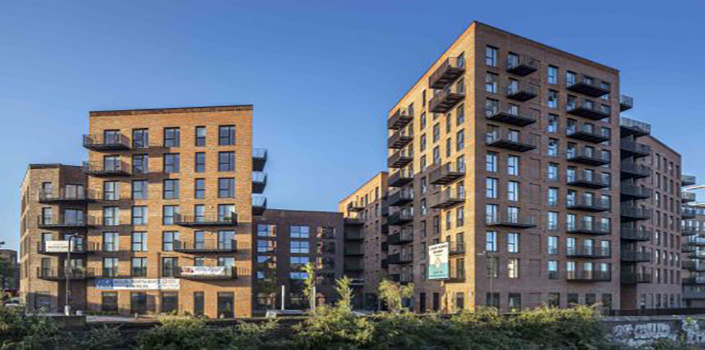Waugh Thistleton issued a statement on the government ruling, welcoming the response to Grenfell, but noting, “We are clear that mass timber construction is not a valid target for this change and will continue to advocate for its exemption.” Waugh Thistleton designed the Dalston Works development in London – the world’s largest CLT building and a winner of the Modern Methods of Construction Project Award in the World Architecture News Awards 2018.
Here’s a quick summary of what’s changed.
What is changing in UK building law?
The government is amending Approved Document B: Fire safety of the building regulations. This prohibits the use of materials in an external wall that do not have a high combustibility rating (A2-s1, d0 rated or A1 under European classification), apart from elements such as window frames and membranes.
Why is the law changing?
The change has been prompted by the fire at Grenfell Tower, in North Kensington, in June 2017. The fire in the building, which had been refurbished with aluminium composite material (ACM) cladding, resulted in 72 deaths and was the most severe fire in UK housing since the Second World War.
What kind of buildings are covered by the amendment?
Combustible materials will not be permitted on the external walls of new buildings over 18m in height containing flats, as well as new hospitals, residential care premises, dormitories in schools and student accommodation. Schools of more than 18m in height, which are built as part of the government’s centrally delivered build programmes, will also not use combustible materials in external walls. All elements of the external wall are covered by the ban, including attachments such as balconies.
When does the change take effect?
The amendment takes effect on 21 December, and there is a two-month transition period.
To find out more about the winners of the WAN Awards 2018, click here.
https://www.worldarchitecturenews.com/article/1519216/top-global-projects-triumph-wan-awards
